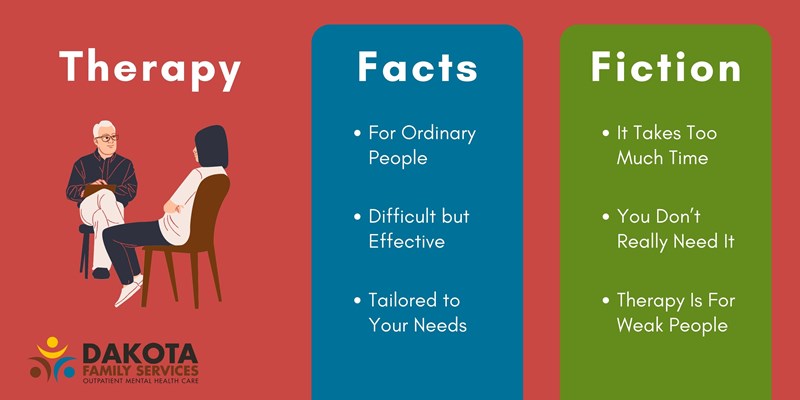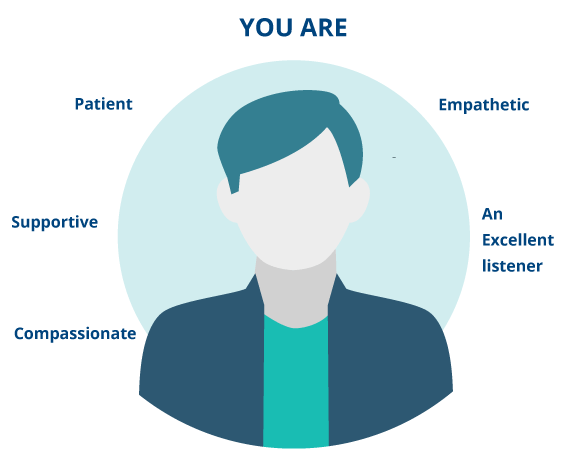The Importance of Mental Health And Wellness: a Deep Dive Into Counseling, Treatment, and Their Advantages
Psychological health greatly shapes specific health, impacting behaviors, feelings, and thoughts. Therapy and therapy offer as vital methods for healing and personal development. They provide structured support, assisting people navigate life's difficulties. Yet, numerous stay unaware of the particular kinds of treatment readily available and their one-of-a-kind advantages. Comprehending these facets is very important for anybody thinking about professional psychological wellness assistance. What adheres to might illuminate courses to durability and gratification that numerous forget.
Comprehending Mental Health and Its Influence
Although psychological health is commonly overlooked, it plays a vital role in overall well-being and everyday functioning. It includes emotional, psychological, and social aspects that affect just how people think, feel, and behave. A person's mental health and wellness straight influences their ability to deal with stress, connect to others, and make selections. Poor mental health and wellness can bring about numerous issues, consisting of stress and anxiety, clinical depression, and difficulty in preserving partnerships, every one of which can prevent individual and professional growth.Furthermore, mental health has significant ramifications for physical health and wellness. Chronic tension and untreated mental problems can add to numerous physical disorders, such as heart condition and damaged immune reactions. Alternatively, favorable mental health fosters durability, enabling people to deal with life's difficulties properly. Comprehending psychological wellness's relevance is essential for cultivating supportive settings that promote emotional wellness, consequently enhancing the lifestyle for areas and individuals alike
The Different Kinds Of Counseling and Treatment
In the domain name of mental health and wellness, numerous therapy and therapy types accommodate varied needs. Specific counseling strategies concentrate on personal issues with individually sessions, while team therapy characteristics foster shared experiences and support amongst individuals. Recognizing these modalities is important for picking the ideal intervention for various challenges.
Private Counseling Approaches
Many individual therapy methods exist, each made to attend to particular psychological health worries and provide to varying client demands. Cognitive Behavioral Treatment (CBT) focuses on determining and changing negative idea patterns, while Psychodynamic Treatment explores past experiences and subconscious processes. Humanistic Treatment emphasizes personal growth and self-actualization, fostering a supportive environment. Interpersonal Therapy (IPT) targets partnership issues and communication patterns to enhance emotional health. Additionally, Acceptance and Commitment Therapy (ACT) motivates customers to approve their ideas and sensations while dedicating to personal worths. Each method uses one-of-a-kind methods and ideologies, permitting specialists to customize their methods to the individual, thus enhancing the restorative experience and advertising psychological health and wellness healing.
Group Therapy Characteristics
Team treatment characteristics include different therapeutic strategies that utilize the power of common experiences and social relationships. This type of treatment commonly includes varied groups, cultivating a safe setting for individuals to express sensations and ideas. Key kinds of group treatment include support teams, which offer psychological support; process-oriented teams, focusing on social interactions; and psychoeducational groups, focused on giving knowledge regarding psychological health and wellness issues. The characteristics within these teams can improve self-awareness, as members commonly assess their actions in connection to others. Furthermore, team therapy fosters a feeling of belonging, lowering feelings of seclusion. Through shared narratives and cumulative problem-solving, participants can develop coping methods and gain insights, inevitably adding to specific growth and healing.
The Function of Therapy in Mental Health
Therapy plays a vital role in mental health by supplying numerous techniques customized to private demands. These techniques supply specialist support that can lead to substantial renovations in emotional well-being. Understanding the different kinds of counseling can help individuals make informed choices about their psychological health and wellness care.

Kinds Of Therapy Techniques
While different therapy techniques exist, each offers one-of-a-kind approaches and understandings into mental health and wellness treatment - Marriage Counselling. Among one of the most famous are cognitive-behavioral therapy (CBT), which concentrates on changing unfavorable thought patterns; psychodynamic treatment, which checks out unconscious procedures and youth experiences; and humanistic strategies, emphasizing personal development and self-actualization. Furthermore, solution-focused brief therapy focuses on finding solutions in today as opposed to diving into troubles. Team therapy cultivates neighborhood and shared experiences, while family therapy addresses relational characteristics within domestic frameworks. Each method provides to different demands, straightening with individual preferences, problems, and therapeutic goals. Understanding these approaches helps customers make educated options concerning their psychological wellness journey and promotes reliable treatment customized to their unique scenarios
Benefits of Professional Guidance
Many people profit from professional guidance in managing their psychological health and wellness challenges. Therapy offers a risk-free space for clients to discover their thoughts and feelings without judgment. This healing atmosphere fosters self-awareness, permitting people to determine patterns in their actions and establish healthier coping techniques. Expert assistance also offers accessibility to evidence-based methods that can reduce symptoms of anxiousness, depression, and various other psychological health issues. Furthermore, counselors can assist in setting reasonable objectives and supply support in accomplishing them, enhancing overall well-being. The collaborative relationship in between counselor and client is crucial, as it promotes accountability and encourages individual development. Eventually, professional assistance plays an essential role in guiding psychological wellness trips, leading to boosted emotional durability and life complete satisfaction.
Benefits of Therapy: Healing and Development

Just how to Select the Right Specialist or Counselor
How can one navigate the commonly overwhelming process of selecting the ideal therapist or counselor? Determining individual demands is necessary; people should consider their certain concerns, whether depression, partnership, or anxiety obstacles. It is valuable to study various restorative approaches, such as cognitive-behavioral therapy or psychodynamic therapy, to locate an ideal match.Next, possible customers need to look for references from relied on resources or use on-line directories. It is crucial to examine specialists' qualifications, including their education, licensing, and areas of expertise. Setting up preliminary consultations can help evaluate compatibility, permitting individuals to evaluate interaction styles and individual comfort.Finally, logistical elements, such as area, schedule, and fees, need to additionally be taken into consideration. By thoughtfully weighing these components, one can make a notified choice, inevitably cultivating a restorative relationship that supports mental health and individual growth.
Overcoming Stigma: Embracing Mental Health And Wellness Support
While social perspectives towards psychological health and wellness have developed, stigma still provides a considerable barrier for many looking for assistance. This stigma often shows up as misconceptions bordering mental ailment, leading people to feel shame or worry concerning their battles. Many individuals hesitate to go after counseling or therapy due to stress over being evaluated or identified. Overcoming this stigma is essential for fostering an encouraging atmosphere where people can honestly discuss their mental wellness needs.Communities and organizations play an essential role in this makeover by advertising understanding and education and learning about mental health concerns. Efforts that highlight personal stories can humanize these experiences, motivating others to look for help without fear. As approval expands, people may really feel extra equipped to embrace mental health assistance, identifying it as an important facet of total health. By taking apart stigma, society can grow a society of understanding, concern, and proactive mental healthcare.
Approaches for Maintaining Psychological Wellness Outside of Therapy
Although treatment provides important support, keeping mental well-being outside of sessions is just as vital. Individuals can implement several approaches to sustain their psychological health and wellness. Routine physical task plays an essential role, as exercise promotes the release of endorphins, which improve mood. Furthermore, a balanced diet rich in nutrients can substantially affect emotional stability and power levels.Practicing mindfulness and meditation assists individuals manage stress and establish better self-awareness. Developing a consistent rest routine is additionally essential, as top quality rest is critical for cognitive feature and emotional regulation.Engaging in social tasks fosters link and lowers sensations of isolation. Seeking pastimes or interests can give an innovative outlet and boost self-worth. Setting sensible objectives and exercising self-compassion enables individuals to grow resilience. By integrating these strategies into life, people can effectively sustain their mental wellness beyond therapy sessions.
Regularly Asked Questions

Just How Can I Tell if I Need Therapy?

Determining the demand for treatment commonly includes acknowledging relentless feelings of unhappiness, stress and anxiety, or frustrating stress. If day-to-day functioning ends up being difficult or coping mechanisms stop working, seeking expert support may be a beneficial advance.
What Should I Anticipate in My First Treatment Session?
In the initial treatment session, individuals can expect an introduction, discussion of their reasons for seeking help, and a review of the therapist's technique, developing a structure for future discussions and developing comfort in the therapeutic area.
Are Online Therapy Sessions as Effective as In-Person Ones?
Study shows that online treatment sessions can be as efficient as in-person ones. Variables such as the specialist's credentials, customer engagement, and the restorative relationship greatly affect outcomes, despite the medium used.
Can Treatment Assist With Partnership Concerns?
Treatment can assist individuals in resolving relationship issues by giving devices for communication, comprehending emotions, and resolving problems. Cognitive Behavioural Therapy. It promotes much healthier dynamics and motivates individual development, ultimately promoting stronger, much more meeting connections in between companions
For How Long Does Therapy Generally Last?
Therapy period varies considerably based on individual needs and objectives. Usually, sessions might last from a few weeks to several months, with some individuals involving in ongoing therapy to address long-term worries and individual growth. Cognitive Behavior Therapy (CBT) concentrates on determining and changing adverse thought patterns, while Psychodynamic Treatment explores past experiences and subconscious procedures. Key kinds of team therapy include assistance groups, which offer psychological support; process-oriented groups, focusing on social communications; and psychoeducational groups, intended at giving expertise Cognitive Behavioural Therapy about mental wellness problems. Among the most popular are cognitive-behavioral treatment (CBT), which concentrates on changing negative thought patterns; psychodynamic treatment, which discovers subconscious procedures and childhood experiences; and humanistic methods, stressing individual growth and self-actualization. Team therapy fosters neighborhood and shared experiences, while family members therapy addresses relational characteristics within domestic frameworks. It is beneficial to research study numerous therapeutic methods, such as cognitive-behavioral treatment or psychodynamic treatment, to locate a suitable match.Next, prospective clients must look for references from trusted resources or make use of on-line directory sites.